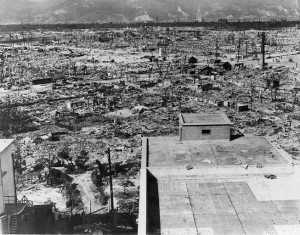Washington Shocked! Shocked That AP’s George Jahn Is a Tool for Iran Deal Opponents
Greg Sargent this morning walks us through the latest math from the Washington Post on Congressional war hawks trying to obstruct the breakthrough P5+1 agreement with Iran limiting its nuclear technology. Not only does the Post find that Congress has very little chance of overriding a Presidential veto of a vote of disapproval, but as Sargent notes:
It’s not out of the question at this point that opponents will fail to muster 60 votes in the Senate to stop the deal — which would mean that President Obama would not even need to veto the expected measure disapproving of the accord, sparing us a veto-override fight.
So, of course, with the deal looking like it has smoother than expected sailing, opponents have been forced into a desperation move. That hit yesterday afternoon, when known tool of Iran opponents George Jahn (see my posts about his dismal track record here) published an AP story (try that link, but God knows what version of the story you’ll get, see below) that fits his normal pattern. He cites a “draft” of an agreement between the IAEA and Iran on inspection of the Parchin site. Much controversy has surrounded allegations of previous work there. Jahn describes what he saw in the draft agreement and says that “one official familiar with its contents said [it] doesn’t differ substantially from the final version”.
Further complicating matters, Jahn’s story went through several changes in the hours after its release. Fortunately, I don’t have to walk you through all of that or the details of what Jahn claimed. This excellent piece by Max Fisher at Vox walks you through the baffling evolution of the story. The Fisher piece relies heavily on Jeffrey Lewis, who was very quick to note the level of duplicity coming from Jahn even before Fisher talked to Lewis:
@johncsorensen As described, it isn’t typical. But @georgejahn‘s description is so prejudicial I have trouble accepting it at face value.
— Jeffrey Lewis (@ArmsControlWonk) August 19, 2015
In the Fisher piece, Lewis provides us with the perspective that is needed to understand Jahn’s move:
“The oldest Washington game is being played in Vienna,” Lewis said. “And that is leaking what appears to be a prejudicial and one-sided account of a confidential document to a friendly reporter, and using that to advance a particular policy agenda.”
What Fisher completely missed, though, is that George Jahn is the poster child for this behavior that Lewis describes. At the end of the piece, Fisher expresses shock that AP would take part in such a ruse:
But it is disturbing that the AP allowed itself to be used in this way, that it exaggerated the story in a way that have likely misled large numbers of people..
Jahn has been playing precisely this game at AP for years, so it has “allowed itself to be used in this way” many times before by Jahn.
In reading about how events evolved after Jahn put up the first version of the story, it pays to look at these events in the light of the usual process of hurling the lopsided accusation out there and then watching the propaganda develop around it. Iran deal opponents were so fast to to jump on the story that we are left to wonder if they had a heads up as to when it would go live. Republicans in Congress were able to get their condemnation of this “secret side deal benefiting Iran” into some of the earliest revisions of Jahn’s article. And that was the precise reason Jahn was given the copy of the draft agreement in the first place, because it was seen as the last and best chance for Congress to disrupt the deal.
One more point needs noting in this context. Deal opponents, as mentioned above, are quick to spin the agreement between the IAEA and Iran as being kept secret because it is such a sweet deal for Iran. That paints the picture that the IAEA is on Iran’s side. As noted in the Vox piece, though, confidentiality in agreements of this type are the norm. Further, as virtually nobody discussing these developments points out, the Director General of the IAEA, according to WikiLeaks documents, made it known while he was being considered for the position that he “was solidly in the U.S. court on every key strategic decision, from high-level personnel appointments to the handling of Iran’s alleged nuclear weapons program”. [Note that the cable is from July, 2009, so early in the Obama Administration that US strategy on Iran’s nuclear weapons was primarily still that of the Bush Administration.] So, far from being someone to cut a sweetheart secret deal with Iran, perhaps we might want to see Amano more in the light Iran sees him when they accuse the IAEA of leaking the identifying information on Iranian nculear scientists that allowed them to be targeted for assassination.

